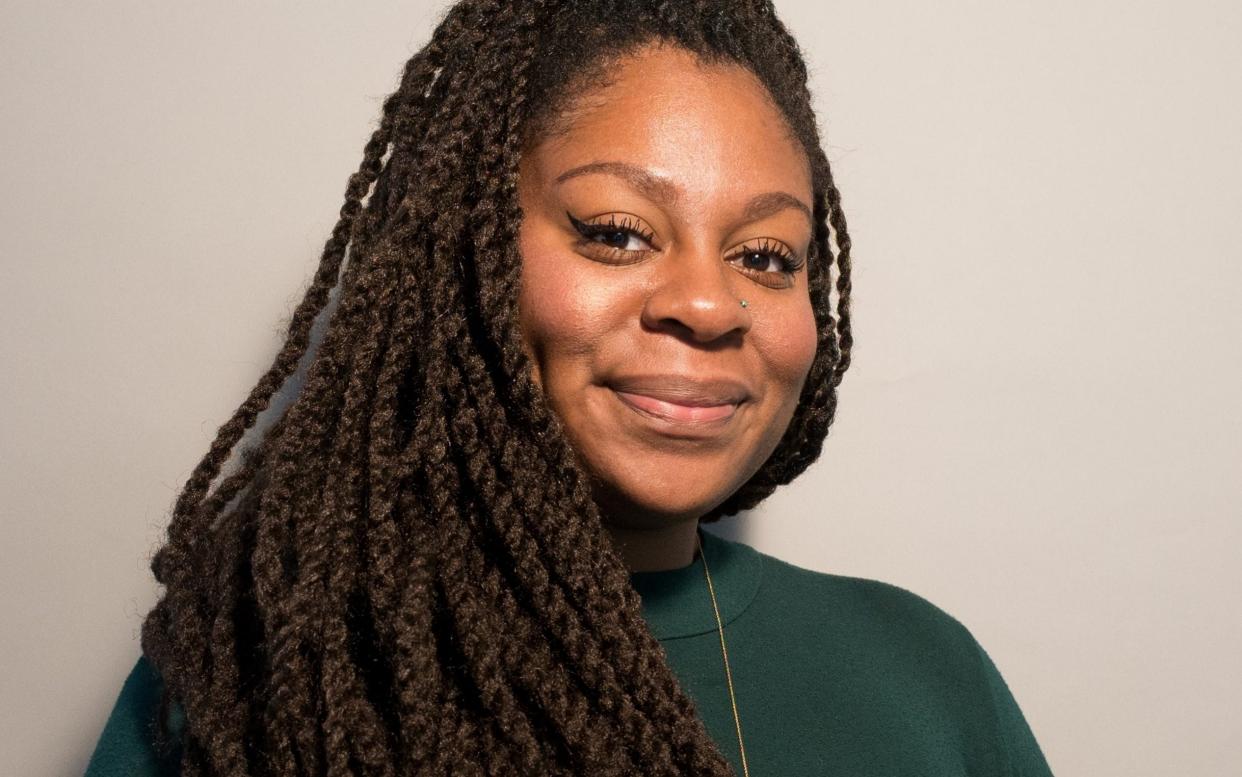Queenie by Candice Carty-Williams review: ‘an essential commentary on everyday racism’

Queenie Jenkins is a 25-year-old British-Jamaican woman living in south London, going on disastrous dates and making ruinous life decisions. If the tribulations of debut novelist Candice Carty-Williams's creation sound familiar, you can forget what you know. The only common thread between this irrepressible heroine and Bridget Jones is a character called Darcy, pointedly recast by Carty-Williams as the female best friend who watches from the sidelines as Queenie makes a catastrophically botched job of repairing her broken heart.
Finding herself stony broke after a break-up, Queenie must move into the cheapest room in Brixton that she can find. This is when she begins a painful and unfulfilling sexual odyssey, trying to heal herself by sleeping with a series of fantastically deplorable men who fetishise and racially stereotype her body.
"I spent time in Cameroon," coos one of her squirming conquests, a junior doctor who is so rough with her that she experiences internal bruising. By the time a leery taxi driver praises Queenie for the asses of "all black women" and nicknames his penis "the Destroyer", her self-esteem is so low that she still sleeps with him, mute as a wounded zombie. "I kept the street light in my sights the whole time," she says. "I'm not sure I blinked once." Carty-Williams's brilliantly brutal honesty in these scenes recalls Fleabag's ability to combine humour and quiet devastation. Queenie's misguided relationships can be rip-roaringly funny to read. They can also rip you in two.
Carty-Williams's novel is astutely political, an essential commentary on everyday racism. As a British Jamaican, Queenie is suspended between two places: continually praised for her bodily curves, yet "too much" for her ex-boyfriend, Tom. This mirrors her increasing sense of alienation within her own city, as we watch her getting squeezed out of the south London neighbourhoods that were once her home turf. On a night out in Brixton, Queenie faces the banal humiliation of white people petting her hair, then finds that her favourite Caribbean bakery has been replaced by a burger joint, complete with hipsters holding "colourful cans of beer". Carty-Williams's sharp societal observations remind us how little we hear about the confusing and destructive effects of gentrification on the black psyche.
When Queenie verges close to self-destruction, losing her job and moving in with her grandparents, she is supported by her best friends via a hilarious WhatsApp group chat called "The Corgis". Carty-Williams's championing of the female support network coincides with her own experiences as a publisher and writer: in 2016, she created the Guardian and 4th Estate BAME Short Story Prize, giving a platform to under-represented voices, though she was too busy working to develop her own novel. It wasn't until Jojo Moyes, the author of Me Before You, advertised a writing retreat at her home that Carty-Williams got started, arriving in the Suffolk countryside and putting down 40,000 words in the first week.
Though Carty-Williams earned a helping hand from an experienced writer, Queenie's perception of the adult world remains hostile. As she makes plans to view a flat, Queenie remembers to bring her friend Kyazike, in case she's harassed by a lecherous estate agent again. "Is this what growing into an adult woman is," Queenie rails, "having to predict and accordingly arrange for the avoidance of sexual harassment?"
But Queenie has grown stronger from her excruciating experiences, becomes better at maintaining her identity in the face of systemic prejudice, and we love her for it. As Kyazike points out, Queenie has shown herself to be "our badboy", and, more fittingly, "your girl and mine".
Queenie is published by Trapeze at £12.99 To order your copy for £10.99 call 08448711514 or visit the Telegraph Bookshop

